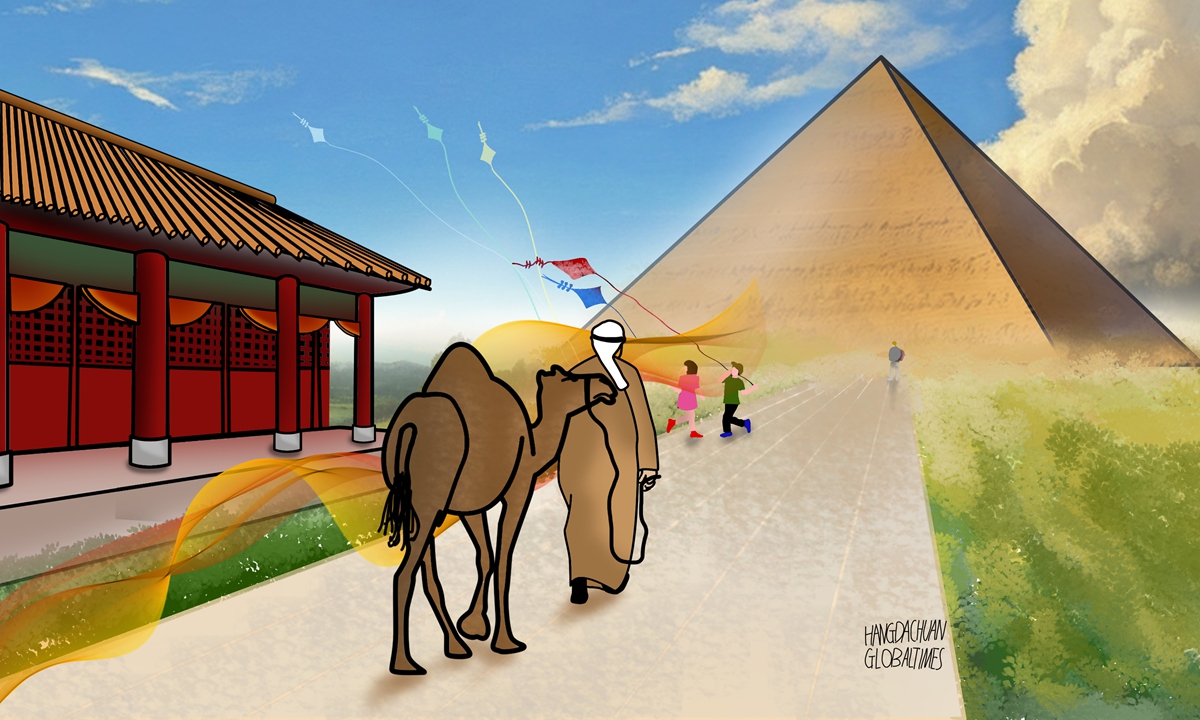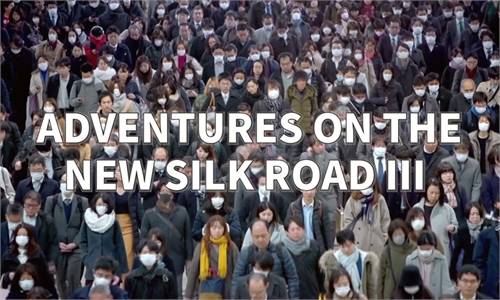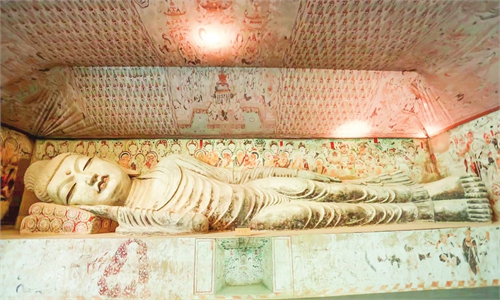ARTS / CULTURE & LEISURE
China-Arab art exhibition helps build 'Cultural Silk Road'

Illustration: Hang Dachuan/Global Times
A Silk Road painting exhibition of famous Chinese and Egyptian artists and a cultural salon were recently held in Cairo, Egypt. At the event, a letter from President Xi Jinping to the Arab artists was read. In the letter, Xi calls for building a China-Arab community with a shared future in the new era and a "Cultural Silk Road," which can provide a guideline for China-Arab cultural exchanges.
The letter was a reply to a recent letter written to Xi by more than 50 noted Arab artists who had come to China to collect artistic materials and find inspiration. They shared their amazement for China's magnificent scenery and their warm feelings about the friendly people they met during their visits to China over the last decade.
The Arab artists visited China as part of an important cultural exchange program under the Framework of China-Arab States Cooperation Forum. Since 2009, more than 100 participants from 22 Arab countries have taken part in 11 activities, during which nearly 500 paintings, statues and pottery works were created.
Years ago, masterpieces from 112 countries and regions were put on display at the Silk Road Art Exhibition at the National Art Museum of China in Beijing. This time these excellent works, along with many others, were put on display in Cairo.
Wu Weishan, head of the National Art Museum of China, first visited Egypt 14 years ago. His paintings inspired by Egypt's profound civilization, The Light of the Pyramid and The Boat on the Nile, were on display at the event. During the salon in Cairo, he also gave a speech in which he emphasized that the two civilizations should work together to inherit their splendid cultural heritages and innovate on them.
According to Egyptian Minister of Culture Nafi Qilani, China-Egypt relations have continuously developed over the past 70 years. As both countries have rich cultural heritages and advocate respect for each other's civilization, cultural cooperation has always served as an impetus to strengthen bilateral ties. He said this exhibition fully manifests the role the Silk Road has played in promoting cultural exchanges between China and Egypt.
From the Silk Road to the Belt and Road Initiative, the civilizations involved have developed close ties over thousands of years.
Egypt was the first Arab country to establish diplomatic relations with China. Since official bilateral ties were set up in 1956, Egypt has conducted many cultural exchanges with China.
In October 2002, the Chinese Cultural Center officially opened its doors to the public in Cairo. Over the past 20 years, it has held more than 100 art performances, exhibitions, training and competitions. Cultural activities such as the Happy Spring Festival, China Travel Week and Singing Aloud in Cairo competition have attracted the active participation of local people.
In 2016, the China-Egypt Year of Culture was organized to mark the 60th anniversary of bilateral ties.
More than 100 exchange activities were conducted on subjects including art, books, films and youth education, pushing cultural exchanges to a new high. During the pandemic, the center used new media to expand and maintain communication channels with China. It is worth noting that 10 days before the 2022 Beijing Winter Olympics, a light show was projected on the landmark Cairo Tower to show Egypt's support for China.
With the continued development of the Belt and Road Initiative, China-Arab and China-Africa tourism have further aligned. Egypt has become a hot tourist spot for Chinese travelers, many of whom have had the privilege to listen to Chinese audio guides during tours of the Grand Museum of Egypt thanks to the assistance of Chinese tourist departments.
China and Egypt share common values based on thousands of years of cultural accumulation. Both advocate dialogue and oppose conflict between civilizations, and respect the cultural differences of other nations. The homes of the Great Wall and the Pyramids can not only admire each other from a distance, but also join hands to provide an impressive example for mutual learning between civilizations.


